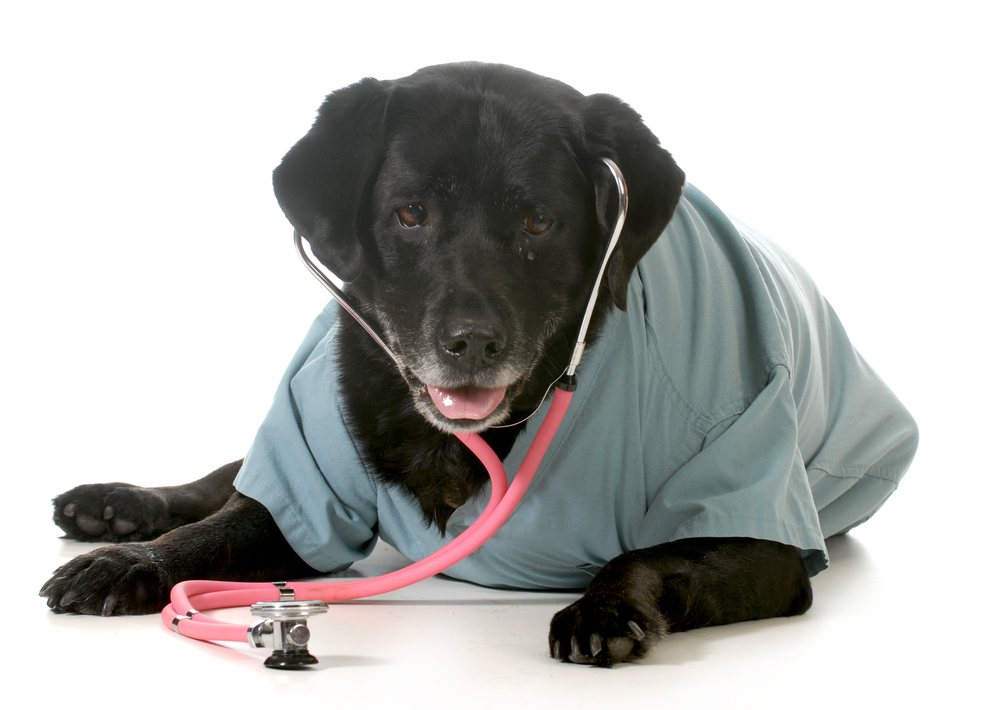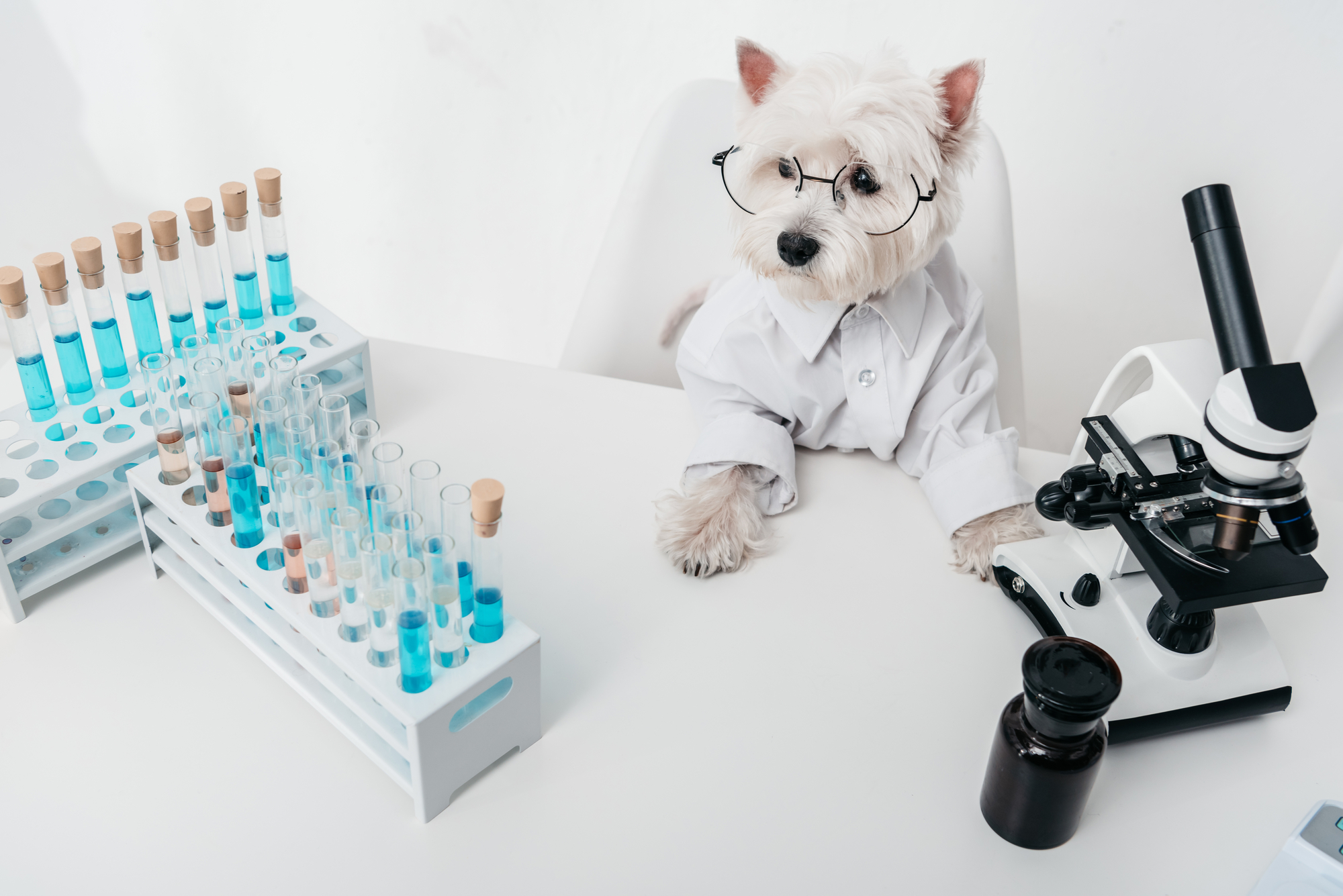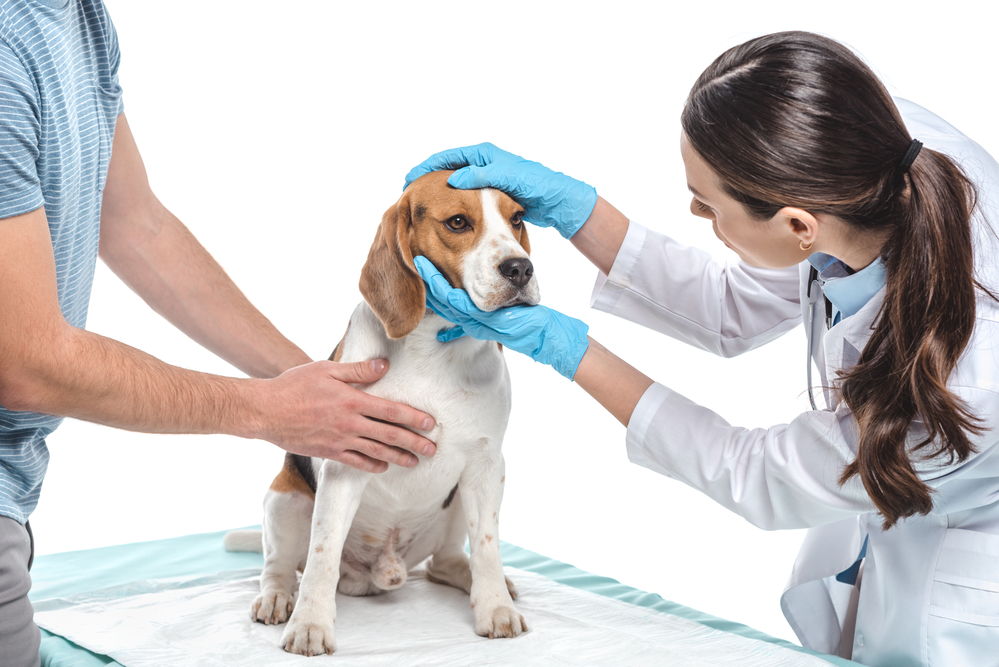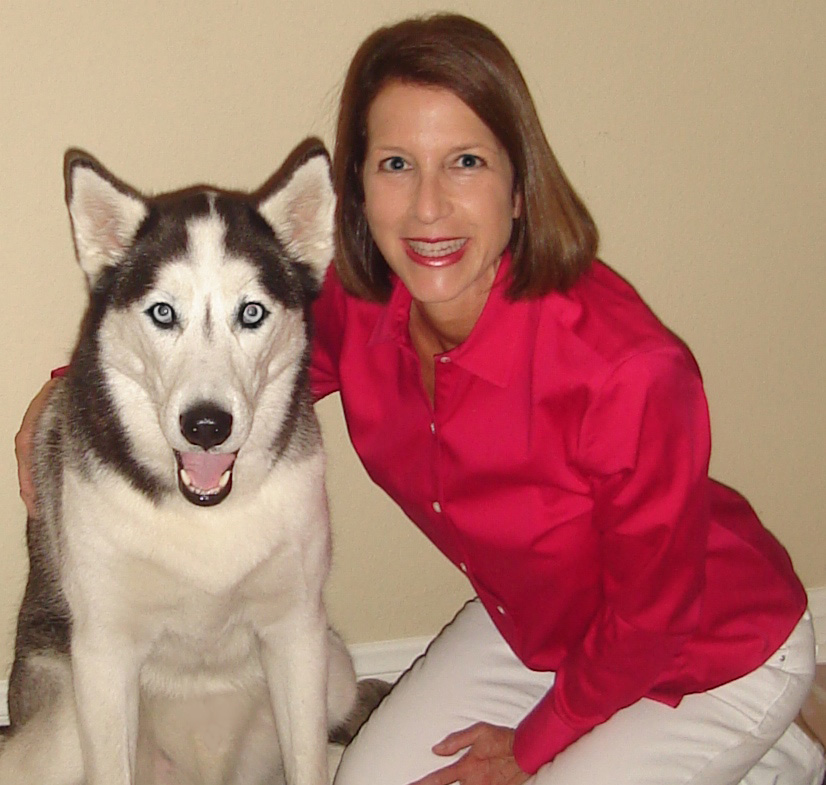
Dog Cancer Guide: What To Do When Your Dog Has Cancer
Your dog was diagnosed with cancer. Now what? Our dog cancer support guide will help explain the different veterinary treatment options and dog cancer supplements that are available. After my dog Legend was diagnosed with liver cancer, I searched the internet to find ways to help him. I sought advice from professors doing clinical research, investigated every possible medication and treatment to try to help my beloved dog. Legend weighed 80 pounds and lived to be almost 15 years old. I wrote this heartfelt cancer guide to help you understand your options and manage the stress associated with having a dog with cancer.
Our goal is to provide you with dog cancer help and support. We include both traditional and alternative approaches. Whether you choose surgery, chemotherapy, radiation or palliative care, using dog cancer supplements can help support your pet.
The steps for cancer treatment in dogs can vary depending on the type of cancer and the individual pet's condition. However, here are some general steps that may be involved in the treatment process:
1. Diagnosing Cancer in Your Dog
The first step in any dog cancer treatment is getting a diagnosis from your veterinarian.
Physical Examination - Your veterinarian will conduct a thorough physical examination of your dog, palpating for any abnormal lumps, masses or enlarged lymph nodes while evaluating overall health.
Medical History Review - Your veterinarian will assess your dog's medical history noting any observed symptoms or changes in behavior.
Diagnostic Tests - Imaging tests such as radiographs (X-rays), ultrasound or CT-Scans are used to visualize internal structures and detect any abnormal masses or changes. Blood work, including complete blood count (CBC), blood chemistry analysis, and tumor markers, can provide valuable information about the pet's overall health and detect certain abnormalities that may indicate cancer. If a suspicious mass is identified, a biopsy may be performed to collect a small sample of tissue. In some cases, a fine-needle aspirate or a tissue smear may be obtained from a mass. The sample is then examined under a microscope by a veterinary pathologist to determine if cancer cells are present and to identify the type of cancer. While cytology can provide initial information, a definitive diagnosis may require a biopsy.
2. Consultation With A Veterinary Oncologist
Even if you are not going to pursue treatment, scheduling a consultation with a veterinary oncologist can be very helpful. Veterinary oncologists are veterinarians who have undergone additional training and education specifically focused on diagnosing and treating cancer in animals. They possess specialized knowledge and experience in the field of veterinary oncology, enabling them to provide the highest level of care and treatment options for dogs with cancer. Veterinary oncologists have access to advanced diagnostic tools and techniques, such as specialized imaging, cytology, histopathology, and molecular testing, which can help to determine the type, stage, and extent of the cancer. While there isn't a miracle cure for dog cancer, this information is crucial for developing an appropriate treatment plan. Veterinary oncologists can also participate in cutting-edge therapies, clinical trials, and experimental treatments that may not be readily available through general veterinary practices. Consulting an oncologist opens up the possibility of accessing innovative and potentially more effective treatment options for your dog.
3. Consider Cancer Treatment Options
Once you have a diagnosis, the next step is to evaluate the costs and benefits of the treatment options for your dog's cancer. Treatment options can include surgery, chemotherapy, radiation therapy, immunotherapy, targeted therapy, or a combination of these approaches. They may also include natural dog cancer treatments like vitamins and diet changes. Your veterinarian or veterinary oncologist will help you determine what options to consider, based on the type and stage of cancer, as well as the pet's overall health.
4. Surgical Options for Dog Cancer
If the tumor is localized and surgically removable, your veterinarian will perform surgery to remove the cancerous tissue. This is often the initial step for many solid tumors. A veterinary specialist may be needed if accessing the tumor is difficult. Many times the entire tumor cannot be removed, but a procedure called debulking can be done. Debulking is surgery to reduce the size of the tumor as much as possible, knowing that some of the cancer will remain. Once the tumor has been removed, a pathologist will examine the tissue. The cancer cells will be analyzed along with the surgical “margins”. These are the borders surrounding the cancer tissue that was removed. Veterinarians will often refer to “clean” margins when all of the cancer tissue has been removed and no cancer cells are found on the border.

5. Chemotherapy for Dogs with Cancer
The word chemotherapy connotes fear because of the way it affects humans. But chemotherapy for dogs can be an entirely different experience. While intravenous administration may be required for some types of medications, others can be in pill form that the pet owner can administer at home. Most dogs do not experience significant side effects from chemotherapy and many tolerate the treatment well. Chemotherapy may be used to shrink tumors, slow down cancer growth, or alleviate symptoms. It can be done along with surgery, radiation or by itself. There are different types of chemotherapy protocols depending upon the pet’s stage and overall wellbeing.
Systemic Treatment - Chemotherapy may be given as a systemic treatment, meaning it targets cancer cells throughout the body. It is particularly beneficial when cancer has spread or is likely to spread beyond a single location. By circulating through the bloodstream, chemotherapy drugs can reach cancer cells that may be too small to detect or located in multiple areas of the body.
Tumor Shrinkage and Control - Chemotherapy can help shrink tumors and slow down their growth. This can be especially valuable when surgical removal of the tumor is not possible or when cancer has metastasized (spread) to other areas. Chemotherapy can help reduce the size of tumors, alleviate symptoms, and improve the pet's quality of life.
Chemoembolization – This new state-of-the-art procedure is a more targeted form of chemotherapy where the medication is injected directly into the cancer tumor.
6. Radiation Therapy for Dogs with Cancer
Radiation therapy utilizes high-energy radiation beams to target and kill cancer cells. It is often used in cases where surgery is not possible or as a follow-up treatment to eliminate remaining cancer cells after surgery. Here are some common pet radiation treatment protocols:
Localized Treatment - Radiation therapy is a local treatment that precisely targets cancer cells in a specific area of the body. It is particularly beneficial when cancer is localized and confined to a specific region, such as a tumor in a specific organ or a site where surgical removal is challenging or not possible.
Tumor Control - Radiation therapy is effective at killing cancer cells and reducing the size of tumors. It damages the DNA within cancer cells, inhibiting their ability to grow and divide. By reducing the tumor size, radiation therapy can help alleviate symptoms, improve organ function, and enhance the pet's quality of life.
Adjunct to Surgery - Radiation therapy can be used as an adjuvant treatment before or after surgery. Radiation can be used as a pre-surgical treatment to shrink tumors, making them more manageable for surgical removal and potentially increasing the chances of successful surgery. Even when a tumor is surgically removed, microscopic cancer cells may remain in the surrounding tissues. Use of radiation therapy post-surgery helps eliminate these residual cells and reduces the risk of recurrence.
Palliative Care - In situations where a cure is not possible, radiation therapy can be used as a palliative treatment to relieve pain, improve comfort, and enhance the pet's quality of life. It can help shrink tumors, reduce pressure on surrounding tissues or organs, and alleviate symptoms such as pain, bleeding, or difficulty breathing.
7. Immunotherapy for Dogs with Cancer
Immunotherapy aims to enhance the dog's immune system to recognize and attack cancer cells. It can involve the use of vaccines, immune-stimulating drugs, or monoclonal antibodies. Immunotherapy is often used in combination with surgery, radiation and chemotherapy.
Activating the Immune System - Immunotherapy aims to stimulate and enhance the dog's immune system to recognize and attack cancer cells. It can help activate immune cells, such as T-cells and natural killer cells, to recognize cancer cells as foreign and eliminate them.
Targeting Specific Cancer Cells - Immunotherapy can be designed to specifically target certain markers or proteins present on cancer cells. This targeted approach can potentially spare healthy cells and tissues, leading to fewer side effects compared to conventional therapies.
Long-Term Antitumor Response - Immunotherapy can induce an ongoing antitumor response in a dog's body, even after the treatment is completed. It can help create a memory response within the immune system, allowing it to recognize and attack cancer cells if they reappear or spread.

8. Palliative Care For Dogs With Cancer
Throughout the treatment process, palliative care for dogs with cancer can improve your pup's overall well-being. This may include pain management, nutritional support (diet changes and supplements), and addressing any side effects or complications that may arise from the treatment.
Pain Management - Dogs with cancer may experience pain due to the disease itself or as a side effect of treatments. Pain medications, such as nonsteroidal anti-inflammatory drugs (NSAIDs), opioids, or other analgesics, may be prescribed to alleviate pain and improve the dog's comfort.
Anti-Nausea Medication - Dogs undergoing cancer treatment, particularly chemotherapy, may experience nausea and vomiting. Anti-emetic medications may be prescribed to manage these side effects and help the pet maintain a healthy appetite.
Antibiotics and Antifungals - Dogs with cancer may have a weakened immune system, making them more susceptible to infections. Antibiotics or antifungal medications may be prescribed to prevent or treat infections and maintain the pet's health.
Nutritional Support - Dogs with cancer fare best on a low carbohydrate diet. Many pet owners have found that a raw frozen diet works well because it is easily digestible and has a high nutrient content. Adding omega-3s in the form of baked fish, sardines and fish oil is also helpful. The best diet for your dog may depend on what type of cancer they have been diagnosed with. At Ask Ariel, we include free diet tips with each order. Include information about your pet and their current diet and treats on the order form at checkout and we will include some diet tips on your packing slip.
Natural supplements for dogs with cancer can help strengthen the immune system and support overall health. Here are some commonly recommended dog cancer supplements:
Probiotics - Probiotics are beneficial bacteria that can support gastrointestinal health and promote a healthy gut microbiome. They may help improve digestion, nutrient absorption, and immune function. Consider probiotic supplements that are specifically formulated for pets.
Omega-3 Fatty Acids - Omega-3 fatty acids, such as fish oil supplements, can have anti-inflammatory effects and support the immune system. They may help reduce inflammation, support cardiovascular health, and promote a healthy coat and skin.
Antioxidants - Antioxidants, such as vitamins C and E, resveratrol, curcumin, beta-carotene, and selenium, can help neutralize harmful free radicals and protect cells from oxidative damage. They may support the immune system and overall health. Antioxidants can be found in supplements or in natural food sources, such as fruits and vegetables.
Medicinal Mushrooms - Certain types of medicinal mushrooms have immune-stimulating properties and may help support the immune system. Cordyceps and maitake mushrooms can help reduce cancer-related fatigue and the side effects of chemotherapy and radiation. Reishi (the mushroom of immortality) and turkey tail mushrooms contain natural beta-glucans that help to regulate and support the immune system.
Digestive Enzymes - Digestive enzyme supplements can assist in breaking down and absorbing nutrients, especially in dogs with reduced appetite or gastrointestinal issues. They can support optimal digestion and nutrient utilization.
Hemp Extract - Hemp extract is often considered as part of a comprehensive supportive care plan for pets with cancer. It may help manage various symptoms associated with cancer and its treatments, such as nausea, vomiting, and sleep disturbances. Hemp has shown anti-inflammatory properties in various studies. Hemp extract may help reduce inflammation and manage pain associated with cancer or cancer treatments. Reports also indicate that hemp extract has appetite-stimulating effects, potentially improving a pet's nutritional intake. Overall, hemp extract for dogs with cancer could potentially alleviate discomfort and improve the pet's overall quality of life.
 Originally published Dec 11, 2023 Originally published Dec 11, 2023
Updated May 3, 2024
Written by: Susan Davis, Pet Health Nutritionist, CCN
All pet treatment protocols and pet treatment supplements have been reviewed and approved by a veterinarian
|
|
|